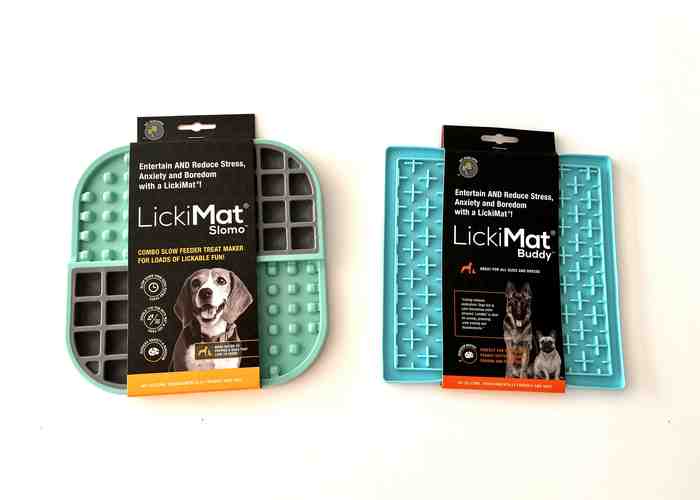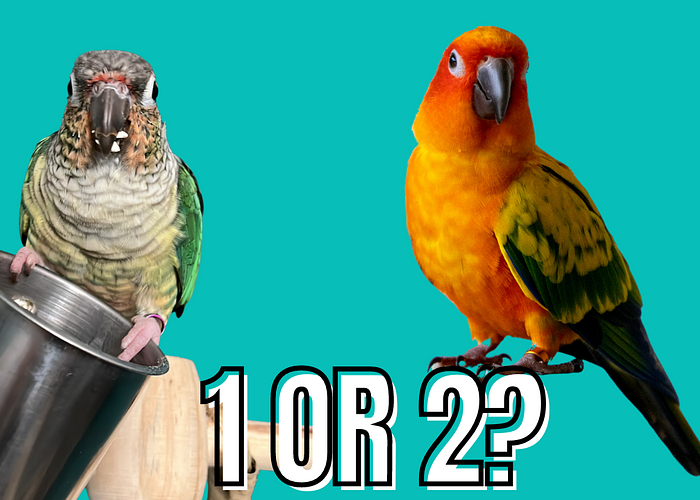Safe & Toxic Metals For Pet Birds
Welcoming a parrot into your home comes with the responsibility of creating a safe and enriching environment. While providing a balanced diet and a comfortable cage are crucial, understanding the potential hazards of different materials, especially metals, is equally important. Let's look at safe and toxic metals for pet birds, helping you make informed choices to ensure the well-being of your avian companions.
Safe Metals:
-
Stainless Steel:
Stainless steel is widely regarded as one of the safest materials for bird cages, toys, and accessories. It's durable, rust-resistant, and does not contain harmful coatings or paints. Ensure that the stainless steel used is high quality to prevent potential hazards. -
Aluminum:
Aluminum is another safe metal option for bird products. Unlike iron or steel, aluminum doesn't rust; instead, it corrodes into aluminum oxide. Unlike rust, aluminum oxide is non-toxic and safe, but I would still replace it at that point. -
Nickel-Plated Metals:
Nickel-plated metals can be safe for birds if the plating is secure and not chipping. However, monitoring these items for any signs of wear and tear is essential. If the plating begins to deteriorate, it's best to replace the item right away to prevent potential exposure to harmful metals.
Note: Steel & Iron are also safe but are NOT recommended because they rust especially when they come in contact with water so I would say it's best to avoid these!
There's also wrought iron which is made entirely from iron, it’s safe for birds and is often used for cages due to its high durability.
There's also wrought iron which is made entirely from iron, it’s safe for birds and is often used for cages due to its high durability.
Toxic Metals:
-
Lead:
Lead is extremely toxic to birds and can lead to serious health issues. Avoid using products containing lead, such as certain paints, cage materials, or toys. Be cautious about antique or hand-painted items, as they may have lead-based paints. -
Zinc:
Zinc toxicity is a common concern for pet birds. Items like galvanized cages, hardware, or zinc-coated toys should be avoided. Ingesting even small amounts of zinc can lead to severe illness or death in birds. -
Copper:
Excessive amounts can harm birds. Avoid using copper-containing items in the bird's environment! -
Brass:
Brass contains both zinc and copper, making it hazardous for birds. Brass items should be avoided to prevent toxic exposure.
And galvanized metals are also unsafe. When a metal, such as iron or steel, undergoes the process of galvanization, it is coated with a protective layer of zinc to ward off corrosion. However, since zinc is toxic, any metal that has been galvanized becomes hazardous for birds! Hence, it is imperative for us to be mindful and exercise caution with metals around our birds.
A few symptoms of heavy metal toxicity:
- Lethargy
- Visible depression
- Decreased appetite and weight loss
- Increased need for water, thirty more than normal
- Abnormal droppings: greenish-black in colour, blood in droppings, diarrhea
- Weakness/ataxia: falling from perches, unable to fly or walk straight
- Vomiting
- Possible seizures
- Fluffed feathers (for abnormally long periods)
A few common household items that contain heavy metals:
- Metal keys & locks
- Galvanized cages, bells, and toy parts
- Modern-day coins
- Regular nuts & bolts
- Costume/fashion jewellery
- Most types of batteries
- Plumbing pipes and fittings
- Staples
Tips for a Safe Avian Environment:
-
Regular Inspections:
Periodically inspect your bird's cage, toys, and accessories for signs of wear and tear. Replace any items showing deterioration to prevent potential exposure to toxic metals. -
Educate Yourself:
Stay informed about the materials used in bird products. Read labels, ask questions when purchasing items, and be aware of potential hazards associated with certain metals. -
Consult with Avian Veterinarians:
If you suspect metal toxicity or your bird exhibits signs of illness, consult an avian veterinarian immediately. Early detection and treatment are crucial for a positive outcome.
Establish a standard guideline specifying that only stainless steel, nickel-plated, and aluminum metals are permitted in your bird's surroundings. When uncertain, err on the side of caution and refrain from using other metals.
Creating a safe and enriching environment for your pet birds involves making informed choices about the materials they interact with daily. By avoiding toxic metals and opting for bird-friendly alternatives, you contribute to your feathered companions' overall well-being and happiness. Regular monitoring, education, and veterinary guidance will ensure a thriving and joyful life for your avian friends.




.png)